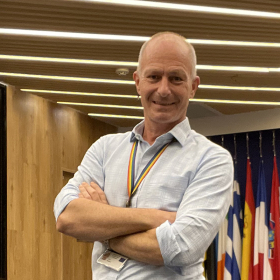

Johan S. - Head of Administration at the EU Delegation to Myanmar
What is your background and what did you do before becoming a Head of Administration?
I worked at DG INTPA in Finance & Contracts at Headquarters and in the Delegation to the Philippines. My first posting as Head of Administration was at the Delegation to Indonesia and Brunei and ASEAN and now I have been Head of Administration to Myanmar since 2016. In between I worked 2 years at the Inspection and ex-post Division in Headquarters.
In a nutshell, how would you describe the role of Head of Administration in an EU Delegation?
In a nutshell, the Head of Administration has to make sure that everything is in place so that the other colleagues can do their job.
That includes infrastructure (accommodation for expat staff, offices), security, office cars, accounting (payments of all administrative costs of the Delegation and work related expenses of the staff, management of the Delegation’s local bank accounts), tendering of contracts for the above mentioned activities and management of the contracts, human resources of the local agents (recruitment, evaluation, promotion, medical reimbursements), training coordinator, protocol (obtaining visas, diplomatic ID, driver’s licences for all expatriate staff and their family members, import/export authorisations, tax exemptions, consular correspondent, etc) and IT. And when things go wrong in the country, you have to be efficient in crisis management.
What is the most satisfying part of your job?
The job is so diverse, you never get bored one single moment. And it is very satisfactory to see concrete results of your work.
Why should people apply to work for the EU and in particular for the job of Head of Administration in an EU Delegation?
If you are a person who likes diversity, who believes in the European project and who wants to make a difference, working for the EU is for you!
The job of Head of Administration is without any doubt the most interesting (and challenging) job available for AST officials or Contract Agents. Apart from the Head of Delegation, the Head of Administration has the most responsibilities in a Delegation and you really make a difference in the daily life of your colleagues. The diversity of tasks you are responsible for keep you alert and you learn every day – not only procedures and technical knowledge but also in social skills and about the culture of the country you are posted in.
To feel good as Head of Administration, you must be willing to work a lot and take on responsibilities, have excellent people skills, be a problem solver, be stress resistant and be a positive person.
How do you handle /how do you see the frequent rotation and opportunities for professional growth in EU Delegations / in the EEAS?
Even if you apply for the same job, every country you are posted in brings its own specificities and uniqueness into your daily work. You adapt, learn and grow as a professional and as a person. The EEAS allows you to shorten your posting if the country is not your cup of tea, or extend if you really like it. Through your daily interaction with your colleagues of other sections, you also learn about their job and the EEAS allows you to apply for other types of posts if that is what you want.
What are the advantages of working in a diverse environment like the one of EU Delegations?
We were all raised within our own community with its culture, values and habits. Working in an EU Delegation exposes you to a multitude of cultures, habits and values. Not only from the country you are posted in, but also from your other expatriate colleagues (and friends) who come from all over Europe (the world). These exposures enrich your life, broaden your mind and make you a better person.
What do you find difficult in turn?
Living far away from friends and family is sometime difficult, but the EEAS foresees in annual home leave and rest leaves (in hardship countries) so that you can go back regularly to Europe.
What is it like to work and live in EU Delegations?
First of all, it is important to prepare yourself before you apply for a certain country. Doing a bit of research on life in a country can save you from bad surprises or disappointments. And still then, you will be in for plenty of surprises, which makes it so interesting to work and live in a different country. And while you immerse yourself as much as you want in your new country, inside the Delegation, you will be in an environment that is familiar, a little piece of Europe.
In a Delegation you will be part of a small community with its advantages and disadvantages. It is therefore important to have a positive mindset and maintain good relationships with your colleagues. Overall, I’ve only had good experiences, learned so much, did things I never thought I would be able to do and made friends for life. Of course there are difficult moments, situations or colleagues but that you have everywhere and the advantages of being able to live and work abroad largely compensate for the less pleasant instances you may experience.
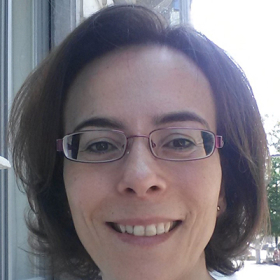
Sandra Cristina A. (European Commission, Directorate-General for Budget)
Back in 1992, when I was taking my accountancy bachelor’s degree in Porto, Portugal, my public accountancy professor explained to us what the then European Community would mean to Portugal (which had joined 6 years earlier) and the impact it would have in the way accountancy, reporting and public accountability were disclosed.
After some years working in the private and public sector in Portugal, I joined the European Commission in 2003, having passed a competition for accounting assistants. I was very excited to come to Brussels as I wanted to be part of the team which was the centre of competence for accounting and financial control of the European Union (EU).
Coming from a country in the western periphery of the EU which has been very dependent on EU aid, I appreciate that my work contributes to good decision-making in the EU and provides stakeholders with meaningful financial information about the use of EU resources.
To achieve this, our team analyses the operational data provided by the different services, DG’s and Institutions and processes it in order to deliver high quality accounting information, on time, efficiently and in an innovative manner.
As I progressed in my career, I was able to participate in a myriad of projects and to take on new and exciting responsibilities and learn a lot about the diverse financial activities of the Commission and the other EU entities (the European Parliament, EU agencies, etc).
In case you wonder, there is never a dull moment! Work is complex and challenging but my unit is both young and dynamic: we genuinely enjoy working together so as to support the goals of the EU and celebrating together our achievements, both professional and personal!
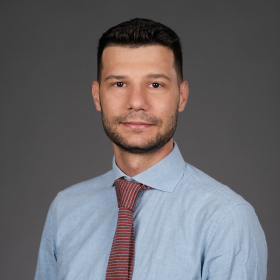
Preslav M, European Parliament
I have been working in the European Parliament for five years. In my Unit, we advise and support the Members of the European Parliament (MEPs) in the management of their local assistants’ and local service providers’ contracts. ‘Local’ in this context means that the operations are occurring in the countries in which the MEPs were elected.
My role is to make sure that MEP’s requests are handled professionally and payments to their staff and service providers are made on time. An important part of my job is to verify and guarantee the legality and regularity of these transactions by ensuring that the appropriate rules are observed.
The variety of situations and questions that I face daily, while having direct contact with MEPs and their assistants, is what I consider the most challenging but also interesting aspect of my job. Furthermore, it is rewarding to know that my work contributes to the sound and transparent management of the Parliament's finance and budget.
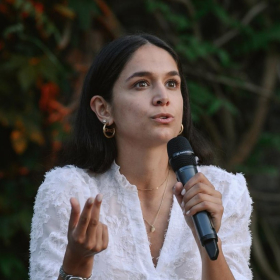
Sevim A. (European Commission, Directorate-General for Climate)
"Yes! I am an energy engineer and I work in the Department of Climate Action. The beauty of working on climate change is that it's complex, interconnected and inevitably touches every corner of our economy & society. It is very rewarding to see the relevance of my technical expertise in EU policy-making."
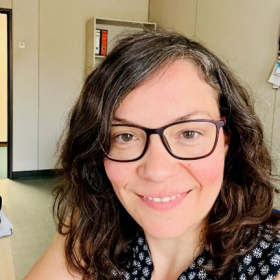
Soledad (Economist - Council of the EU)
“I joined the Council’s Directorate-General for Economic and Financial Affairs in 2016, and this is my second post here. In my first post I had the unique opportunity to be responsible for the negotiations on the Recovery and Resilience Facility, the main programme of NextGenerationEU, the post-pandemic recovery plan.
In my current post in the Budget and Cohesion Unit, I am in charge of the budget heading dealing with the Union’s external action, and as a result I was also fortunate enough to be responsible for the negotiations on the EUR 18bn macro-financial assistance package to Ukraine for 2023.
Before coming to the Council, I worked in DG FISMA at the Commission, and before that I worked at the European Parliament, where I had the chance to support the negotiations on the so-called six-pack and two-pack (the Stability and Growth Pact and the Macroeconomic Imbalances Procedure).
In sum, while I don’t work as a hardcore economist, my job does require the thinking, the knowledge and the type of analysis that an economist’s work does. Having a handle on the figures and being able to interpret them is always a valuable skill to bring to your work. And as you can see, you can switch institutions as and when it suits you, which also enriches your growth and your work – particularly, for example, during negotiations. I’m never bored!”
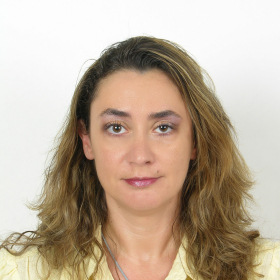
Yolanda (European Commission)
"Crisis management encompasses the response to emergencies, in Europe and around the world. Organised along the pillars of civil protection and humanitarian aid, crisis management, for DG ECHO, means tight deadlines, coordination with the other EU institutions and the Member States and with international organisations, travel, and, most of all, the sense that you are doing something that brings tangible benefits to millions. I work in communication – keeping the public informed on what the Union is doing in response to crises from the COVID-19 pandemic to the activation of the civil protection mechanism for Ukraine, to the organization of humanitarian air bridges to the strengthening of the EU’s firefighting fleet. Every day brings something different."
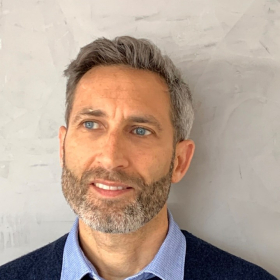
Emmanuel (Operations Department – EUIPO)
"My name is Emmanuel, I am from France, and I speak English, French, Spanish, Italian, and German – the five languages of the Office. The EUIPO, where I started working back in 2008 as an external Project Manager, was my first European institution. A couple of years later I started working in International Cooperation, which brought me closer to IP - and I loved it. A few years later, after a period working for the European Parliament, I passed a competition for IP professionals and went onto work in Design examinations in the Operations Department of the EUIPO.
I deeply enjoy my work within the Operations department, especially the balance between examining designs (core business) and being part of more horizontal projects such as Artificial Intelligence applied to trade marks and designs (mostly for image recognition and automatic classification). One of the activities that I love getting involved in is delivering presentations and conferences to international stakeholders. For instance, next October I'll be going to Cameroon to train African examiners on designs. In the past, I also had the chance to visit Latin American countries such as Costa Rica, Peru, or Ecuador in the context of International Cooperation.
Alicante is a great place to live if you are an outdoor enthusiast. I enjoy activities such as sailing and hiking. Alicante has a manageable size, and it was not difficult at all to adapt when I first arrived."
Sophie, European Commission
“European transport policy touches upon everyone’s daily lives. That is what I realised soon after I started working in the Transport Committee of the European Parliament 15 years ago. I am now in DG MOVE (Directorate-General for Mobility and Transport) in the inter-institutional relations team.
In this coordination unit, you have a very good overview of the DG and the pending ad upcoming MOVE proposals. It’s a perfect position to understand the working methods and dynamics of other institutions as well. It is extremely interesting to closely follow the proposals though the different stages of the co-legislation process and to see how the text evolves in the Council working parties/Coreper meetings and parliamentary Committees/plenaries, and later during the trilogue negotiations”.
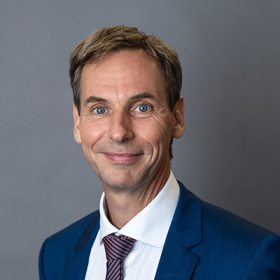
Walter van H., Head of the trade and economic section
Following my studies in political economy, development and business administration, I worked on trade, industry and development policies, among others for the International Labour Organisation in Nigeria; the Dutch Foreign Service; Oxfam Novib; and more recently the European Union.
For the EU, I helped establish a joint undertaking in Barcelona supporting nuclear fusion development. I worked on humanitarian aid and health policies and more recently on our trade policy, leveraging EU trade for improving labour, human rights and environmental standards.
I was posted in Thailand, Indonesia and the Philippines, where I served as head of the trade section of the EU Delegation, engaging government and civil society on free trade agreements, trade and sustainability and market access.
In January 2021, I was appointed head of the trade and economic section of the EU office to Hong Kong and Macao.
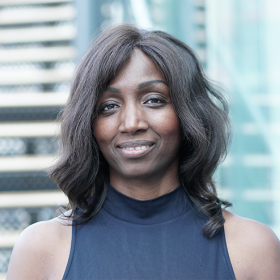
Adja (European Commission - Directorate General for Economic and Financial Affairs)
“Applying for EPSO’s competition for economists can be a great opportunity from many respects!
Hi, my name is Adja and I am a macroeconomist at the European Commission, DG ECFIN. I have a Ph.D. in applied international economics (major econometrics) from the University of Namur. Before joining the European Commission, I worked in the Federal Planning Bureau in Brussels.
Since 2019, I am working in the field of EU fiscal policy. I first spent some years in the unit in charge of the coordination of Member States’ surveillance in the context of the Stability and Growth Pact. Being in constant interaction with many units and colleagues across the DG, was a great experience, which definitely has developed both my practical knowledge on the application of the Pact, a cornerstone of the EU policy, and my leadership skills. It also widened my horizon as regards the different factors driving the EU fiscal policy and public debt developments.
As a result, I recently joined the unit responsible for monitoring and assessing the sustainability of EU public finances in relation to fiscal risks stemming, for instance, from ageing population and related issues (like pensions, health care and long-term care spending), green transition or banking sector. This is a very exciting job, involving a holistic approach to consider fiscal risks arising outside the realm of public finances stricto sensu, some of these risks being also part of the EU major challenges ahead.
So, what can you expect if you work for the European Commission?
- First, you will have the opportunities to deal with many challenges and responsibilities, that are linked to EU policies with a direct impact on Member States,
- Second, you will work with various talented and inspiring colleagues from different backgrounds, both cultural and professional ones.
- Finally, you will also have many occasions to be involved in a broad variety of topics ranging, for instance, from macroeconomic forecasts to the implementation of EU fiscal rules.
So just give it a try, have a look at the Notice of Competition and apply!”

